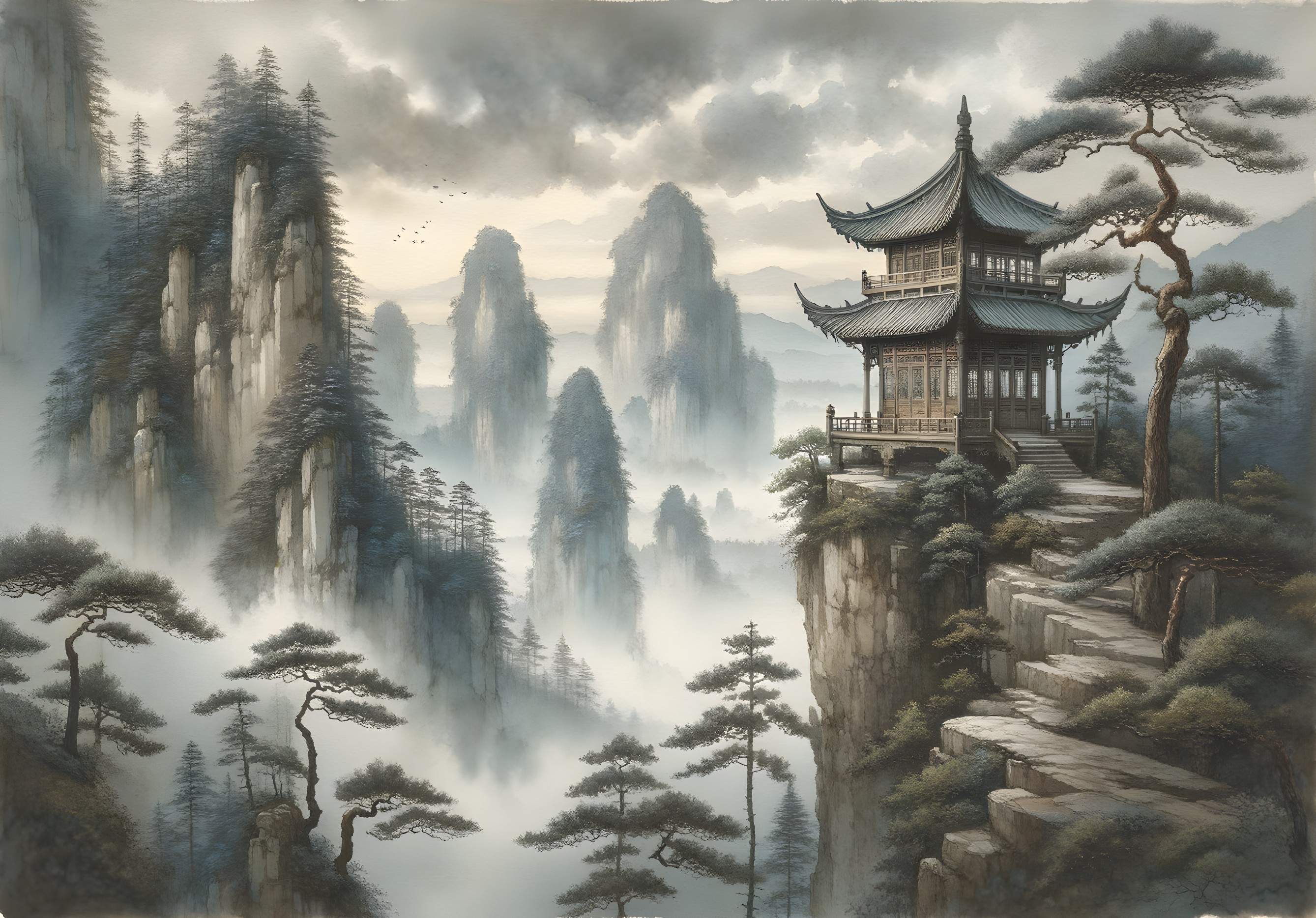Comments
Loading Dream Comments...
You must be logged in to write a comment - Log In

 Artist
Artist
Once upon a time, there was a pavilion built on a cliff that protruded like a forgotten thought from the shoulder of a mighty mountain. It was called "Shizukana," which meant something like "silence" a name not originating from humans, but from the wind that swept through the carved wooden arches, whispering its wisdom into the joints. There lived a hermit. His name was Lin, or had once been, in another life, in another time. Now he was just a part of this landscape—as natural as the mist that rose silently between the trees in the morning, or like the small birds that flew through the sky in the distance, as if they didn't want to leave a trace. The pavilion was built of dark wood, with a roof that rose in curved arches toward the sky. The railings were intricately carved—spirals, dragons, lotus blossoms. They bore witness to a time when people still breathed stories into wood, not into screens. The day began with the sound of a single drop falling from the edge of the roof onto a smooth stone. Lin opened his eyes, but not to see—rather, to sense the invisible: the mist kissing the mountains, the silence between gusts of wind, the soft rustle of a bird's wing far above. He drank tea from a small bowl, its clay the color of damp earth. The steam disappeared into the mist. He didn't own much—a blanket, an untitled book, a bamboo broom, and the time no one could take away from him. During the day, he swept the floor, as if sweeping not only dust but also thoughts from the room. And when he was finished, he sat in the shade of the gazebo, contemplating the mountains—those endless waves of muted gray and blue—and let his senses sink like water into a still lake. Sometimes he wrote something in the book. Not sentences, but symbols reminiscent of the river flowing in the valley below—curving lines that meant: I am here. I was there. I have heard the world breathe. At night, when the mist settled over the valley like a blanket of forgotten dreams, Lin listened to the sound of emptiness. Not a sound you could grasp. More of a feeling—like the lingering ring of a gong long after it has fallen silent. So the days passed. No calendar counted them, no hand measured them. Time flowed past him like a silent river. And sometimes, when the world below in the valley became too loud, hikers would climb up, guided by a hunch. They never found Lin. But they found the pavilion. And there, in the stillness between two breaths, something strange happened: Their worries fell away as if they had never existed. And when they descended again, they carried a piece of that silence with them—like an invisible amulet. It is said that the hermit still lives there. Or perhaps it is no longer a person, but the memory of many. Perhaps the pavilion itself has become the hermit—a being made of wood, wind, and vastness, which wants to teach us that the world doesn't have to be loud to be heard. And if you are ever in the mountains and see a bird flying against the light, all alone,